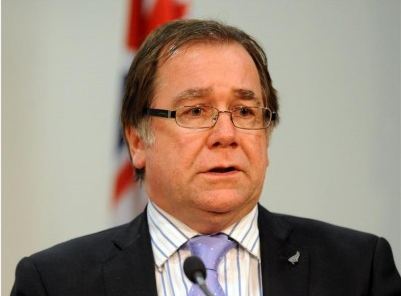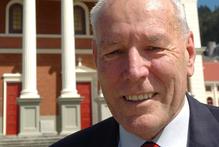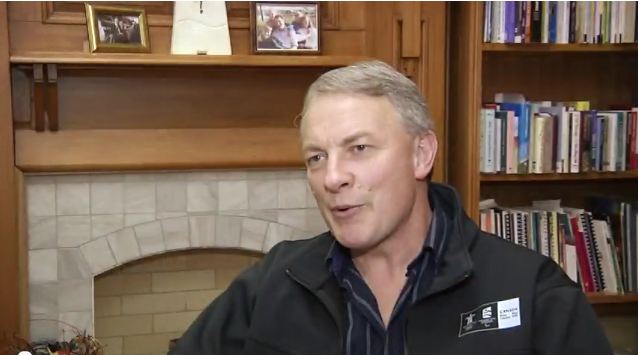What Lauda Finem started out to do was expose a corrupt police force during the 1980’s through 90’s and more specifically the individuals responsible for the malfeasance and chronicle the investigations and subsequent writing of a book on this very specific subject.
It now, however, looks like nothing in almost 23 years has changed in New Zealand. We would like to ask this question of all New Zealander’s; is your whole system of Government corrupt, or just a few of its office holders? Many New Zealander’s, some of which appear to be voting with their feet, may well think its the entire system, although the papers would never say as much- it might inspire an en-mass migration to Australia.
We Know for a fact, given the evidence we have obtained, that the police, historically, went to extraordinary lengths to cover up the offending of its serving members in Gisborne. Doubtless there are many other similar stories, some have in fact been chronicled. The Arthur Alan Thomas case, the Peter Ellis case, but how many of those stories might have brought down a corrupt Government of the day and its members – perhaps the Arthur Alan Thomas police set-up, Prime Minister Robert Muldoon was smart enough to recognise that.
Just how far into the administration did this systemic corruption, malfeasance and the desperate need to bury dirty laundry go, in their actions; in fact in time. Could the same thing happen again in New Zealand in 2011. Why would a State Broadcaster (in an extraordinary abuse of its charter) move to put a country block on YouTube videos/tapes, which would doubtless assist in exposing that same corruption. Audio-visual which would normally be available here & here, unfortunately they are not but you can select tapes 1 & 2 to listen to here
We believe it highly likely that when corrupt, public, officials are not held to account for serious offending and dirty dealings, that the problem will enjoy exponential growth. The evidence suggests that it tends to become systemic. Here in Australia that was very much proven during hearings and the evidence given to the Wood Royal Commission in New South Wales and the Fitzgerald Inquiry in Queensland.
Very often those holding an office with considerable authority and power, especially in Government, will move around as their careers develop. For example police officers can progress from a police officer into the civil service or as we have seen in the case of the retired Police Commissioner, John Jamieson, into allied and powerful institutions such as the Catholic Church.
Migrating with those individuals are the habits and contacts/relationships that they have historically acquired during that career progression. In most cases those habits (good or bad) and the network of (historical) contacts are given to share in the power that comes with the new position.
In the case of an individual that had previously worked within an organisation (that is systemically corrupt), such as a police officer, may then migrate to another position of power. Having had no previous experience of being caught red-handed and prosecuted, they would (quite obviously) have little fear of prosecution and no doubt feel quite comfortable abusing the power that came with their new position.
As an example of this migration, we recently discovered that the New Zealand Media had been reporting on the career change of a civil servant; Mr Keith Manch. So we thought, as an exercise, we would use Mr Manch’s career to demonstrate inter-departmental migration. Mr Manch currently heads up the Real Estate Agents Authority and has (after a very short tenure) been promoted. Mr Manch is about to head off to head up Maritime New Zealand.
As part of the exercise we thought we’d do a little more digging. What we found was quite astounding, Mr Manch, had in fact started his very impressive career as a police officer during which time he was stationed at Police Head Quarters in Wellington up until 1989. Mr Manch, we have been lead to believe, has well developed relationships with a number of senior Government Ministers and past police associates; such as Mr John Jamieson who was, during the 1980,s one of Mr Manch’s superiors. Naturally, we are using Mr Manch and his unique career path as an example of the migratory pattern possible with civil servants through out their careers in the public service:
Keith Manch
Keith Manch is Head and General Manager of the New Zealand Ministry of Consumer Affairs. From 1977 to 1989, Mr. Manch was a police officer in Wellington, where he was engaged in incident and investigation duties. He was also a co-owner and director of a small clothing business for a number of years in the early 1980s.
From 1989 until 1995, Mr. Manch held a range of investigation and management positions in the competition and fair trading divisions of the Commerce Commission, which is New Zealand’s national trade practices law enforcement agency. Since 1995, he has been the General Manager of the Ministry of Consumer Affairs. The Ministry is responsible for consumer policy, consumer information and education activities, trade measurement, general consumer safety and energy safety (electricity and gas) policy and administration. The Ministry has a strong focus on consumer issues in electronic commerce and works closely with the other New Zealand agencies responsible for e-commerce regulatory and economic policy issues.
Mr. Manch has been the New Zealand delegate to the OECD Consumer Policy Committee since 1996. He is a member of the Senior Officials Committee, which supports the Australian and New Zealand Ministerial Council on Consumer Affairs, and has recently been involved in some consumer protection developments in the Asia Pacific Economic Co-operation forum.
Mr. Manch is currently undertaking a Master of Communications degree at Victoria University in Wellington.
Source: http://www.oecd.org/document/34/0,3746,en_2649_34267_1864418_1_1_1_1,00.html
Mr Manch is also a big fan of censorship. Whilst General Manager (Gaming and Censorship Regulation) at New Zealands Department of Internal Affairs Mr Manch was responsible for policy and the design of mechanisms intended to censor the internet in New Zealand. Mr Manch was apparently charged with policing objectionable material on the web. Although, Mr Manch does not state what he personally feels is objectionable. We, however, suspect that he probably shares the same views, and more than a nodding acquaintance, with Terrance Arnold, a past New Zealand Solicitor General. Mr Arnold is now a Judge, the only Judge who, according to at least one source, essentially appointed himself to the Court of Appeal bench. As a further example; Mr Manch, having in the past been involved with the surveillance of internet traffic would still enjoy the ability, through his contacts, to have this site monitored on his behalf, of course. thats not to say that he would.
We have also found complaints on-line with respect to governance issues within Mr Manch’s area of responsibility, which obviously reflect on him. Mr Manch’s Department had unlawfully destroyed and or deleted public records following an FOI request surrounding the censorship policy he was responsible for overseeing. This should be a very serious concern, apparently to make matters worse Mr Manch and his subordinates were fully aware that the very same documents were the subject of an appeal to the ombudsman. On the face of it this obviously smacks of an attempt to conceal important information from public scrutiny, which would of course be a corrupt practice if destruction of the records had been intentional:
Deleting Public Records
Last year we used the Official Information Act to ask for copies of the reports that the inspectors has used to justify banning the websites on the list. The DIA refused. After we appealed this refusal to the Ombudsman, the DIA then said that those records had been deleted and therefore it was impossible for them to give them to us anyway. The Department has an obligation under the Public Records Act to keep such information.
We complained to the Chief Archivist, who investigated and confirmed that the DIA had deleted public records without permission. He told us that the DIA has promised to do better in the future, but naturally this didn’t help us access the missing records.
Source: http://techliberty.org.nz/dia-is-failing-on-openness/
In the very same source there is yet another incident which would call into question Mr Manch’s honesty, integrity and just where his loyalties were, as a public servant:
Secondly, on February the 15th we rang Keith Manch, Deputy Secretary of Internal Affairs, and directly asked him when the filter was going live. Keith is responsible for Regulation and Compliance and has been heavily involved in the implementation of the filter. Did he admit that the filter had gone into operation two weeks earlier? No, he carefully took note of our questions and then wrote in a follow-up email that as we had already asked those questions by letter he wouldn’t answer. We finally got our answer on March the 8th, admitting that the system had gone live on February the 1st.
In a country were there have been no real political changes in the past 30 years (Phil Goff is still an MP and Murray McCully is yet again a Minister despite his deep involvement in the attempted cover-up of New Zealand’s largest fraud, under the Shipley Government) there is a very high risk of corrupt practices going unchecked and as a result becoming widely accepted, perhaps not even being recognised as corruption by the offenders.
Lauda Finem have many examples which evidence this abuse of power. These examples reach into every corner of Government, quasi

kieth Manch, an extremely good example of career migration in New Zealand's antiquated, largely unaccountable Government sector
Government and various other institutions that are required, at law under the Westminster system, to have arms length dealings with the Government, it’s parliament, Ministers and the other elected members.
To date New Zealand, sadly, is the only Commonwealth country that has not held any form of commission of inquiry charged with investigating police corruption or in fact corruption in general; despite there having been many calls for this to happen – do New Zealander’s really believe that their country is some how totally immune, just what will it take?
As a citizen of any truly democratic society we are all are entitled to certain protections. The united nations, Universal Declaration of Human Rights, of which New Zealand is a signatory is clear on the key values that any democratic society must up-hold. In particular articles 7 and 8 spell out the rights of all to seek redress for any wrong that is done:
Article 8.
- Everyone has the right to an effective remedy by the competent national tribunals for acts violating the fundamental rights granted him by the constitution or by law.
Article 7.
- All are equal before the law and are entitled without any discrimination to equal protection of the law. All are entitled to equal protection against any discrimination in violation of this Declaration and against any incitement to such discrimination.
27 Right to justice
(1) Every person has the right to the observance of the principles of natural justice by any tribunal or other public authority which has the power to make a determination in respect of that person’s rights, obligations, or interests protected or recognised by law.
(2) Every person whose rights, obligations, or interests protected or recognised by law have been affected by a determination of any tribunal or other public authority has the right to apply, in accordance with law, for judicial review of that determination.
(3) Every person has the right to bring civil proceedings against, and to defend civil proceedings brought by, the Crown, and to have those proceedings heard, according to law, in the same way as civil proceedings between individuals.
Related articles
- James Kenneth Cunningham & Partner (laudafinem.wordpress.com)
- Corruptio optimi pessima – accforum “Bill Birch” and “not their victim, a jigsaw piece: (laudafinem.wordpress.com)
- James Kenneth Cunningham – Durban here I come (laudafinem.wordpress.com)
- Open letter to Monarch Psychology – Dr Greg Finucane (laudafinem.wordpress.com)
- Psychologist James Cunningham – The recycling of a bent and violent cop (laudafinem.wordpress.com)
- The Stratford Connection – Just who was it that posted “Baton Boy’s” bail (laudafinem.wordpress.com)
- Phil Kitchin, Jenni McManus – Detective James Kenneth Cunningham – where is he now? (laudafinem.wordpress.com)



